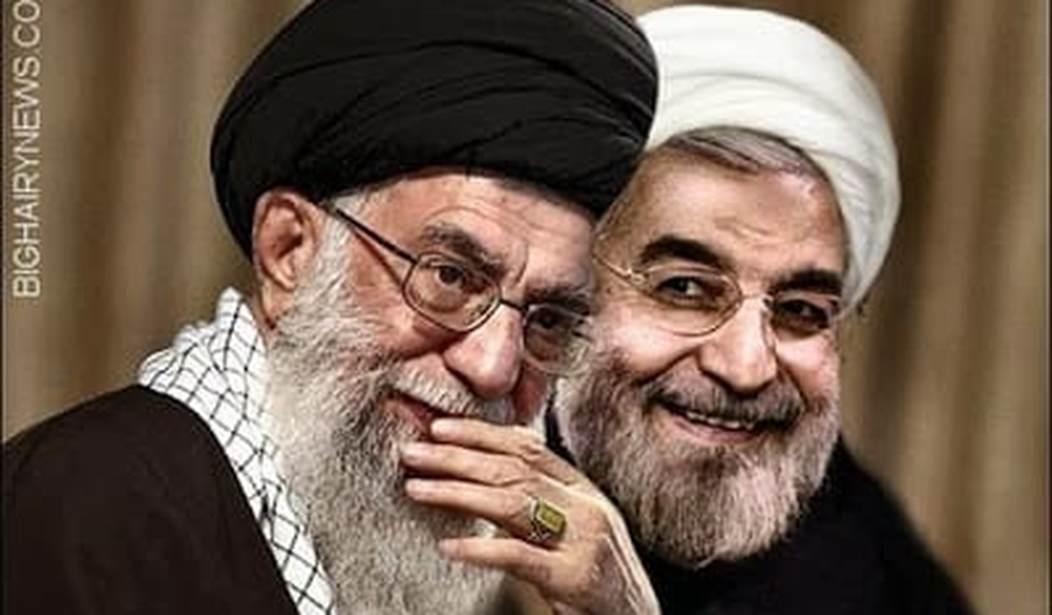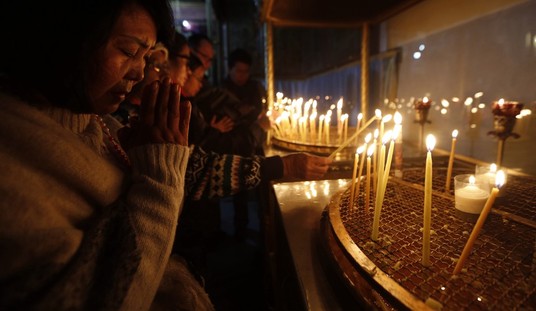WASHINGTON – The chairman of the House Intelligence panel criticized the Obama administration’s policies on Iran and Syria, saying the administration paid a “heavy price” for the deals.
Rep. Mike Rogers (R-Mich.) said the administration wasted time on getting a deal to stop Syria’s chemical weapons program, which averted a U.S. strike, and in the process antagonized many of the U.S. allies in the region.
The United States and Russia reached a deal in late September calling for the destruction of Syria’s chemical arsenal by the middle of next year. A conference meant to broker an end to the Syrian conflict is scheduled to begin on Jan. 22 in Geneva, Switzerland.
“I think it is a positive sign if you take it for what it is,” Rogers said about Russia’s role in the Middle East.
Any deal that brings Russia to the table could be “a double-edged sword,” Rogers said last week at a conference hosted by the Johns Hopkins School of Advanced International Studies. He warned the United States should tread carefully on any agreement with the Russians so that U.S. interests and those of its allies in the region are protected.
“The Russians cleaned up on us on exactly what they got in that particular deal,” Rogers said. “We paid a pretty heavy price with our allies for getting that deal and candidly not including our allies in the negotiations.”
Rogers, who supported a bill allowing the U.S. government to provide weapons to Syrian rebels, said the U.S. needs some “skin in the game” in Syria if it wants the Geneva talks to be successful.
He said that any deal would entail bringing everybody to the negotiations, and right now the U.S. cannot guarantee that the rebels will attend the Geneva conference.
“The Russians can bring Assad, but the U.S. really can’t bring the rebels to the table,” Rogers said.
The relationship between the Obama administration and centrist opposition groups in Syria has deteriorated along with the influence and power of these groups inside Syria. On the other hand, Islamist groups have gained ground since the first Geneva conference in June 2012.
“The conditions on the ground have changed over the last two years. Two years ago we had a whole set of options…today our options just aren’t that good,” Rogers said.
U.S. officials and its allies have met with Islamist militias to persuade them to support the second conference, fearing the talks will not yield a lasting accord without their backing.
If it is just the United States and Russia at the table, then there will be no deal that holds on the ground in Syria, Rogers said.
“That’s why I supported at least trying to have some relationships with the rebels in a way that’s positive to the U.S.,” he said.
Rogers described the Syria talks as part of a pattern of negotiations that have left allies in the region alienated. He said the Iran talks likewise angered many U.S. allies who view the deal as too weak.
“If you don’t include your allies you’re going to create suspicion. Even if you like the deal, and I don’t, you’ve created a level of suspicion now that makes our allies wary and empowers our adversaries,” he said.
The Michigan Republican criticized U.S. Secretary of State John Kerry’s secret talks with the Iranians through Oman over the past two years. He called the back-channel talks, which the Obama administration said helped make the deal possible, an “awful idea.”
He said the Iran deal failed to dismantle any of the three components of their nuclear program – missile delivery, weaponization and enrichment – while beginning to unwind sanctions.
“It can’t be much of great deal if the secretary of State says there’s nothing in the deal that says they can enrich, and the Iranians just about simultaneously say ‘the deal allows us to continue to enrich,’” Rogers said.
He said Iranian leaders are committed to buying time so that they can proceed putting the different components of their nuclear program together.
“We just gave them probably closer to a year,” Rogers said. “When you say a six month agreement, here’s the problem — the clock hasn’t even started ticking yet.”
Several Republicans and Democrats have criticized the agreement by saying it will let Iran continue its nuclear program. Top lawmakers on the Senate Banking Committee have vowed to pass legislation that would take effect if the ongoing talks fail.
Kerry testified before the House Foreign Affairs Committee on Tuesday in an attempt to stop additional sanctions.
“We have upset a very delicate long-term strategic alliance in the Middle East for our allies,” Rogers said. “By doing this deal, you may have actually escalated the possibility that the Israelis feel like they have to do something and you have escalated the possibility that the Saudis and others believe they’re gonna have to acquire nuclear weapons in order to be a stabilizing factor against Iran.”
“So now we may have tipped off a nuclear arms race in the Middle East,” he added.









Join the conversation as a VIP Member